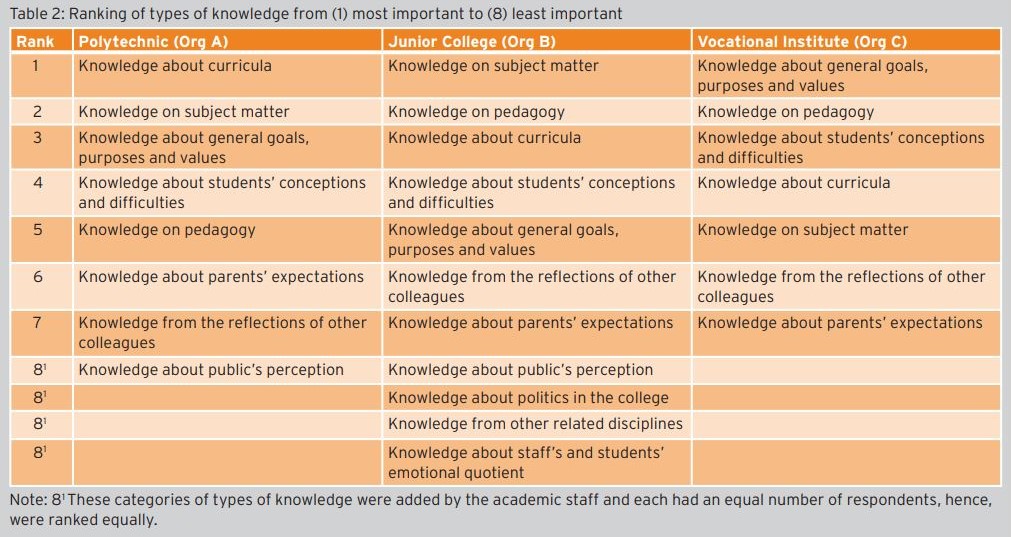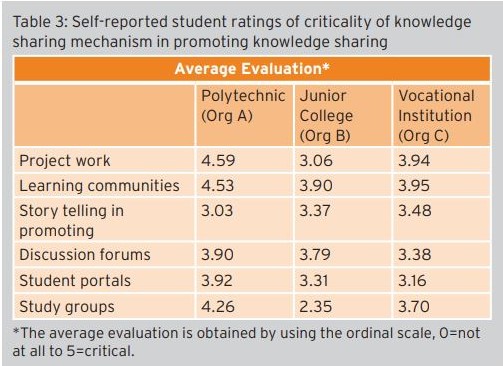Knowledge Sharing in Singapore's Public Post secondary Educational Institutions
Lee Kong Chian Research Fellow Chiam Ching Leen shares her findings, insights, and thoughts on the nature of knowledge sharing in post-secondary institutions in Singapore.
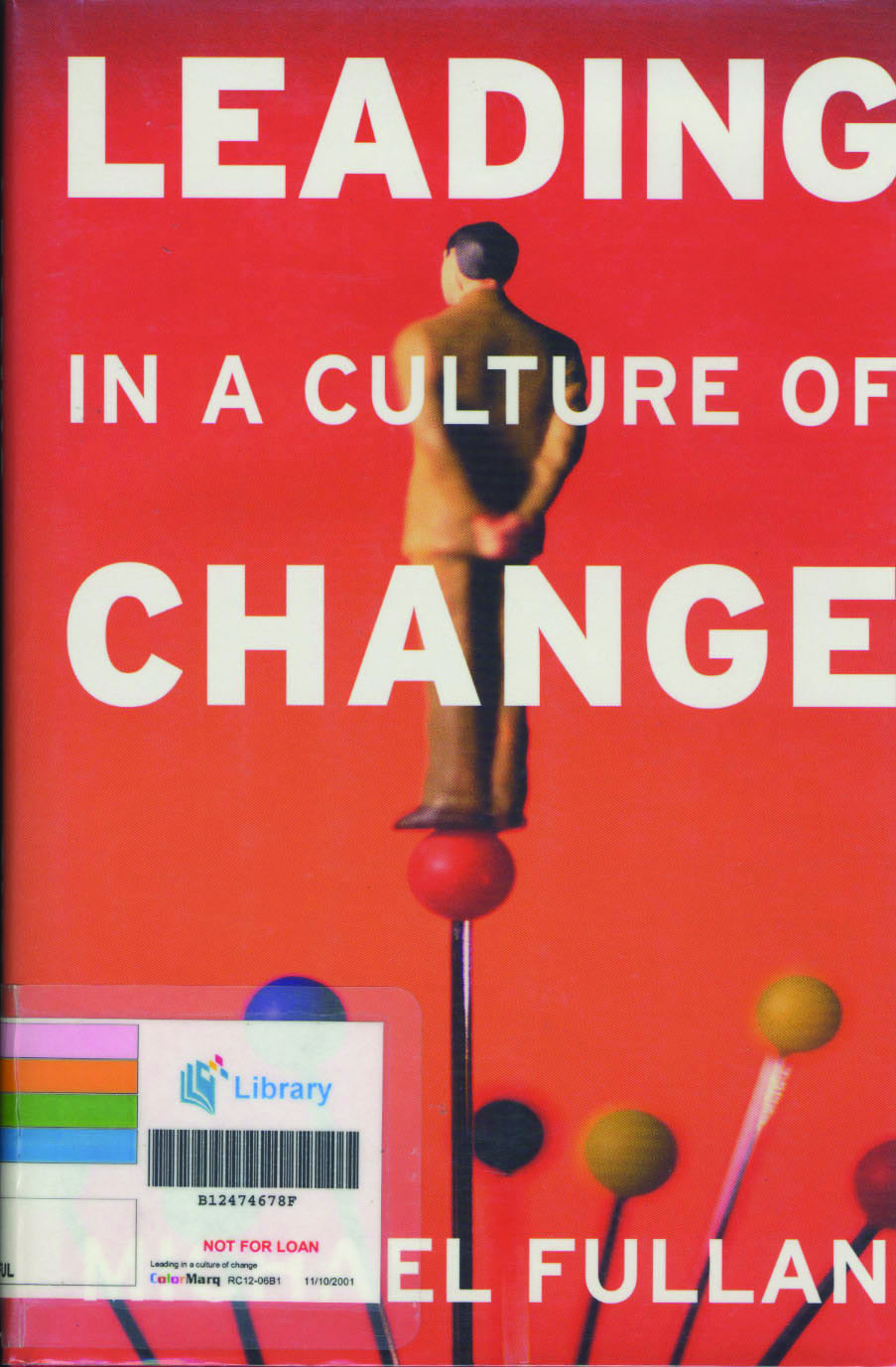
Contextual Background
The knowledge-based economy has ushered in a new era in which knowledge is at the centre of productivity and economic growth. Against this backdrop, what is striking is that public post-secondary institutions, whose purpose is ostensibly for preparing our young people, who are essential to our nation’s competitiveness and continuity, have now come under greater pressure to become more relevant in instilling knowledge sharing (Fullan, 2001; Organization for Economic Cooperation and Development, 2004). Knowledge sharing has been promoted as a vehicle for greater knowledge productivity (Fullan, 2001; Hargreaves, 2000; Sallis, 2002). Notwithstanding this, evidence to date suggests that public post-secondary educational institutions are lagging behind in terms of knowledge sharing. A sense of this is revealed in Hargreaves’ (2000) presentation at the Organization for Economic Cooperation and Development’s (OECD) de la Muette, in which Hargreaves highlighted the dire lack of knowledge sharing in schools. Hargreaves reported, based on his anecdotal experience, that the principals he had engaged with admitted to having staff with extensive professional experience and yet only about 5 to 15 percent of their collective knowledge was shared by all the teachers. He learnt that most of the teachers’ professional knowledge was acquired through trial-and-error learning alone in the isolated classroom, and therefore was locked into their individual heads.
Why Does It Matter Now, Here in Singapore?
There are at least three reasons reinforcing the need for such a study in Singapore.
First, the changing demographic of the teaching workforce, in which a large pool of Singapore’s most experienced teachers will retire in the next five years (Ministry of Education Singapore, 2005) highlights the need to make available the knowledge which is the legacy of these experienced teachers.
Second, there are clear indicators that regional countries have closed the gap with Singapore in terms of knowledge competitiveness (Bhaskaran, Khanna & Giap, 2003, Huggins, Izushi & Davies, 2005). Singapore cannot afford to remain indifferent to such competition as the small nation has limited natural resources which makes it vulnerable to world economic competition. Besides, there are stronger reasons for educational institutions in Singapore to promote knowledge sharing to remain competitive. The prospects of knowledge sharing in improving knowledge capacity, capability and competency seem much more possible in Singapore than elsewhere due to its “extra-educational” contexts and conditions, “because of scale of the system, because of concerted government and private sector and community commitment to education, because of synergies between ministries and sectors of the community” (Luke, 2003, p. 2).
Third, an examination of published articles retrieved from relevant databases1 shows that no multi-institutional studies on knowledge sharing at the post-secondary (pre-university) have been undertaken.
There is so much riding on the need for knowledge sharing and that variations are likely across institutional contexts. Thus, the importance of an exploratory study, contextually grounded in the naturalistic setting of post-secondary institutions to investigate how knowledge sharing is instantiated in Singapore’s post-secondary educational institutions, cannot be undermined. It is through continuing efforts at discussion, education and demonstration that the necessary support for knowledge sharing studies in educational institutions can be obtained.
The Study
This study begins with the effort in investigating and documenting portrayals of academic staff’s and students’ accounts of knowledge sharing experience at three public post-secondary institutions. The institutions were selected to represent the three areas of Singapore’s public post-secondary educational processes (i.e., the public polytechnic, junior college and vocational school level). Readers may refer to Table 1 for a summary of the three research-settings information. As the three post-secondary institutions cater to different groups of students and employ different educational strategies, it seems logical to expect that their requirements for knowledge will differ and so will their practices in sharing knowledge.

Since the focus is to obtain an understanding about the nature of knowledge sharing processes itself, as it is instantiated at three selected post-secondary institutions, case studies were deemed most appropriate (Yin, 1994, 2003), with the premise that knowledge sharing (a human affair tied to human behaviour) is a “complex instance”, multidimensional and open-ended, often typified by multiple perspectives and competing judgments. Besides, underlying this is the recognition that human behaviours cannot be meaningfully understood simply as rule-governed acts; and that concrete, context-dependent knowledge is more valuable than the vain search for predictive theories and universals (Cziko, April 1989; Flyvbjerg, 2006).
Each site constitutes a single case. The main data was collected from semi-structured interviews and supplemented with findings obtained from surveys, classroom observations, archival paper clippings on the institutions, community records and documents, institutional and governmental publications. A total of 65 interviews (average 40 minutes/interview) were conducted (although only 40 interviewees agreed to have their data published), and surveys were collected from 177 students and 49 staff. Fifteen classroom observations were made across the three sites. Findings from each case are used to determine if there exists a common set of institutionalised patterns across the different post-secondary educational settings. This blended approach is useful in providing fine-grained, detailed descriptions of classroom behaviours to generate more general assertions about ways staff can foster good habits of knowledge sharing. Emergent themes were called into question or strengthened through triangulation.
Findings
The findings yielded some individual differences as well as common features across the three cases. Of interest in this paper is the common feature they share. The common feature these organisations shared was that they took into consideration the needs and values of their students and the local communities of the school, although in Org A and B, the entrenched scheme of work (the subject matter) which usually ran along the contents of the syllabus often dictated the knowledge sharing practices in class. Another striking common feature was that most of them would not share their knowledge, unless they were asked or it was required of them as part of teamwork.
It was also evident across the survey findings from the three cases, that “knowledge from the reflections of other colleagues” and “knowledge about parents’ expectations” were deemed to be less significant in terms of its importance (see Table 2). This finding provided empirical support to Hargreaves’ anecdotal observations.
In the triangulation of data, no instances in interview data contradicted the data from surveys, observations and documentations collected. Rather, interviewees’ examples supported and clarified positions described by the survey evidence. Findings from the study clearly articulated participants’ concerns with the assessors’ influence and norms of the institutions (the persistence of educational “traditions”).
In Org B, the academic staff generally perceived exam-oriented testing to be a primary inhibitor to knowledge sharing between academic staff and students. Academic staffs’ accountability towards Singapore’s Ministry of Education (MOE) ranking system at Org B sanctioned a culture of putting priority on finishing the syllabus and favoured the transmission of explicit “testable” knowledge to seemingly passive students, at the cost of meaningful knowledge sharing sessions that could help further nourish students’ knowledge. During the classroom observations, teachers’ concern with the formal examinations was overriding and students generally did not seem to value “non-testable” knowledge. When efforts were made by certain teachers in sharing “non-testable” knowledge, students were seen to be disinterested, suggesting strongly that students were motivated by academic achievement which was much prized by students in Org B.
In the interviews, Org B’s students further affirmed that testable content knowledge was valued more. Group work (such as the Project Work, which is part of the curriculum) was seen by the students as an activity that was felt to be inappropriate to be offered at the junior college level as it had been perceived as wasting time. Although a minority of the students saw the benefits of group work, the general sentiments of the students in Org B were that the Ministry would do better by offering the project work to those at the secondary school level. This finding was also supported in the survey, which clearly showed that Org B’s students least valued the benefits of project work, learning communities and study groups when compared to students from Org A and Org C (see Table 3).
Another finding was that the Org B’s students would only share their knowledge to those who approached them, rather than just share the knowledge with their peers whom they thought needed that piece of knowledge. The general academic staff’s sentiments from the interview data were that time spent on challenging non-routine problems and investigations would mean that they had less time to cover the syllabus for students to be adequately prepared for their examinations. Others had concerns with the time structure or work rhythm and how it affects knowledge sharing, with general sense that they would share their knowledge with their colleague if it is not thrust upon at the wrong time. Those were certainly pertinent issues that needed to be articulated if not addressed.
On the contrary, it was found that the group work assessment in Org A promoted knowledge sharing in Org A. It is interesting to note that at the beginning of the course, the majority of Org A’s students had the tendency to hoard their knowledge as they were afraid that others would be on par with them or would perform better than them academically should they share their knowledge. The students confessed during the interviews that at the early stage, as freshmen on transition from having gone through all their educational activities through the traditional/mainstream didactic lecture styles, they had not been able to see the shared benefits of the Problem-based Learning (PBL) system and how they were mutually obligated to each other, and hence, were psychologically not prepared to share learning despite being in the same team. However, the students had generally, begun opening themselves up to knowledge sharing as they went through the system. When probed during the interviews (at Week 14 of their lessons), the students shared that the real need to share their knowledge began to gnaw at them. They revealed that as they attuned themselves to the requirement of the PBL environment, they saw the practicality of the need to share their knowledge/pool resources with other individuals. What is important to note here is that many students reported being able to surmount most of their initial adaptation problems and had come to terms with the requirements of the PBL pedagogy and become more open to sharing their knowledge. This change is apparently due to their realisation that the course demands in active PBL environment were more challenging and needed multidisciplinary knowledge to solve the problems. This in turn necessitates them to share their knowledge.
Hoarding knowledge wouldn’t really happen here because, after all, what we present will still affect our own grades. So, if we hide something, end up when we present something, the knowledge is not shared with the class then the grades will still be lower. So, most of the time, everyone will share their knowledge and try to make the best presentation out of it lor. (Transcript from Org A’s student)
In fact, the reasons cited for the change in perspective was that knowledge sharing revealed the team’s potential to accomplish the work in a timely manner and provided insights and the scope which was beyond the reach of the most capable individuals, as more often than not, the questions asked from the problem-based learning curriculum required multidisciplinary understanding of a domain rather than an understanding of a topic. Knowledge sharing enabled them to sharpen their desired understanding, skills and promote creativity, gain better grades and at the same time improve their learning. Some have also revealed that by sharing their knowledge, others tend to reciprocate, and this allows them to additional insights to solve the problem. However, when probed further, the underlying motivating factor was still the assessment as their grades were at stake.
Over at Org C, an interesting point was that almost all the academic staff had emphasised to the researcher that the students in Org C were a unique cohort. In their conversation, they always included references to the fact that they are teaching “the lower end that needs to be hand held. The Q4, the 25 percent of the population”.
They have low self-esteem, they are playful, attention seeking and their attention span is very short. So you must not force them to listen to you. Teacher talk is specific to most of the classes cause their attention span is only about 10 mins. So, if you want to tell them something, make it very short and make it very sweet. KISS – Keep it short and sweet. Cause the opposite is KILL. The students tell me this you know. They are very impatient, they want to learn, they want you to tell them quickly, then they will try to grasp the meaning and try to put it. They are not the type who will sit for hours and listen to you. They will show you their boredom by falling asleep on the table right in front of you. And they don’t think it’s wrong. So the approach must be very different from MOE. When it comes to academic learning, we are right at the bottom. Now, how do they learn? They learn by doing. They can’t learn from the books. You try teaching them chalk and talk method arr, you will fail. So a lot of role play, a lot of experimentation, a lot of doing it, DIY (Do It Yourself). (Transcript from Org C’s staff)
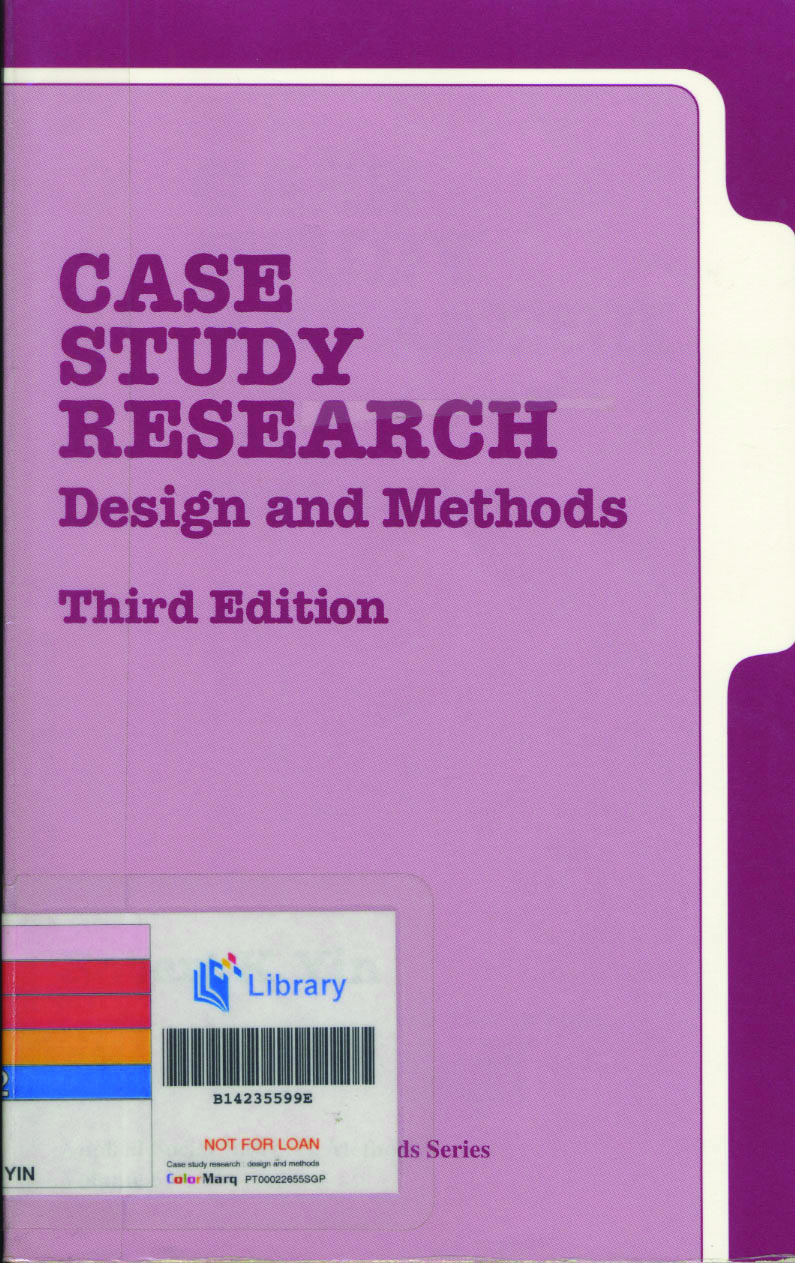
The academic staff also shared that they only taught practical knowledge that they deemed to be necessary to these students, while just mentioning the rest of the stuff in the curriculum. This perspective was very much the perspective that I heard presented in their classes. This perhaps was the underlying reason for the apparent, more subtle effects of assessment on knowledge sharing practice in Org C. The students provide evidence for this, as they perceive knowledge as something quite personal, the kind of experiential learning that can only be gained through experience, as described by the following quote:
Knowledge to me is quite personal. Actually, in Org C most of the class go through things not just by book itself, but most of the time we will be practicing hands on. So, knowledge to me is very experience based. Because through books, you may understand, but when it comes to hands on, you might stuck there. You might not know how to do when you turn to the books, content in the book is quite limited to teach you how to do. It’s more on one to one in showing the examples and the steps that needs to be done to obtain something. (Transcript from Org C’s student)
Org C’s students had varied and perceptive responses towards knowledge sharing, with some seemingly very open to knowledge sharing while some seemed utterly unbothered about making efforts to share their knowledge or for that matter, improve their own learning. They demonstrate that the students’ thinking is affected by everyday life in the subjective postmodern world. The findings also reveal that family backgrounds, their current and previous geographical locations and other social factors influence the students’ views.
When the student participants in Org C were asked for their views on what would motivate them to share their knowledge with others, a consistent consideration was the knowledge of the recipient’s personality and if the students sought the first move in asking. This finding is similar to those in Org B, in which the students revealed that they would only share their knowledge when they were approached, and not do it without someone initiating them to do so. However, students in Org C also implicitly spoke of the fact that their decision to share their knowledge was mostly mediated by their perception of the recipient’s motivation in learning (if the recipient showed effort in learning) as well as their own confidence of the truth of the “knowledge” they held. They were also seemingly more open and more “mature” in their thinking about sharing their knowledge.
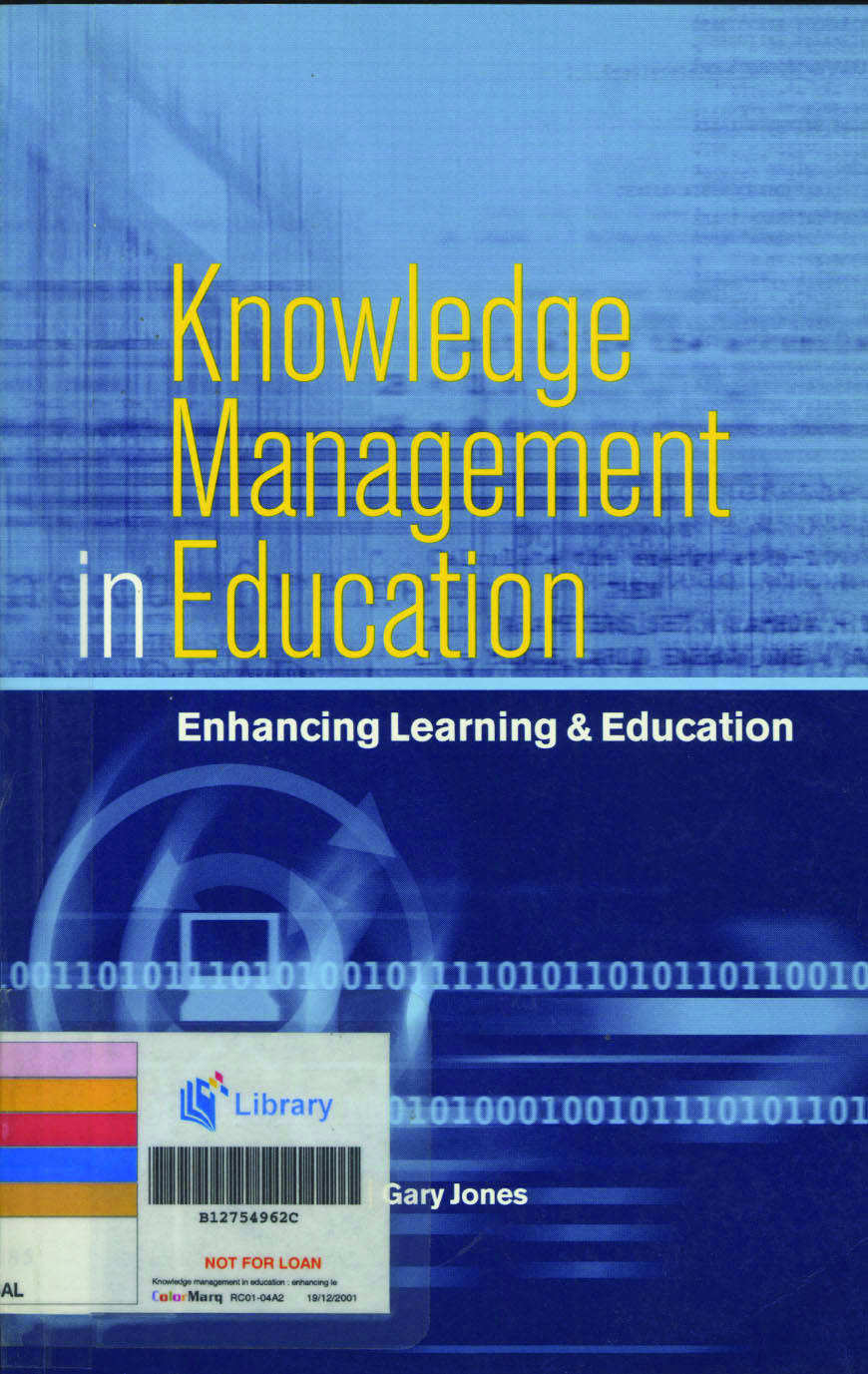
Knowledge sharing from the lecturer down to students, it is certainly conducive. But between the peers ourselves, conduciveness of sharing knowledge is very low. Cause normally the people studying here, around 75 to 80 percent are not really motivated to absorb such knowledge. They just come here and let time pass by each day. So, it’s very hard for us to share knowledge when you don’t have knowledge as well. The level of knowledge for them is low and it’s very hard for them to bounce back questions to us as well as their motivation is low as well. (Transcript from Org C’s student)
It was also seen during the classroom observation that a variety of psychological factors such as the recipient’s morale and negative attitude seemed to have affected the knowledge sharing practice in Org C. A recipient’s short attention span, pride, stubbornness and resistance to change all affected the knowledge flow negatively. It was observed that the teachers generally stressed on building rapport and bonding with the students in order to open doors and to gain students’ trust so as to try to change their low morale mindset. As one teacher shared:
Once they trust you, and they know that you have a listening ear, whatever you ask them to do, they know it’s for their own good and they will try their best for you. But the thing is never run them down you see. Even if they make mistakes, you have to point out very gently. Never never tell them you’re stupid you know you can’t learn blah blah blah so on. Try not to use any negatives la. Only positives. And our students most of them have problems. Most of them come from broken homes. So, in this school we have to counsel more than we teach. You have to give them some kind of mental strengths to fight obstacles. And one of the frame we use is “Children of Heaven”. I think you lose your shoe, you have an old shoe, no shoe, but still you can win in the race. Just stay there and keep on running!
It is also interesting to note that most of the staff teaching in Org C were mostly former students of the institutions. As such, they were loyal to the school because they were brought up by this school and they understood what the students had gone through.
Discussion
Taking the insights from this paper, it is apparent that the academic staff’s and students’ knowledge sharing practices varied due to the different arrangements of the workplace/field experience settings as well as the differences in the ways participants made sense of their various encounters in these settings. To put them in a continuum, Org A’s academic staff role can be seen at the extreme end of the continuum. They typically viewed their role as primarily upholding the standards of PBL rather than realising individual potential, with learners responsible to a far greater extent for their own learning. It was found that Org B’s academic staff generally felt that their primary responsibility lay with their students’ academic welfare, with them being the guardians who were responsible for “spoon-feeding” their students through the conventional didactic lecture-tutorial approach with “testable” knowledge. This approach nevertheless, encourages the function of disseminating information and demonstrating methods and therefore, tends to promote learning by accumulation rather than promoting a collaborative climate for knowledge sharing to excel. The academic staff in Org C meanwhile generally saw their roles as one that shifted from academic communicators to that of advisers and mentors, where their tasks were to help their learners achieve the working and learning goals that they had set out, and only secondarily to act as academic authorities for their learners.
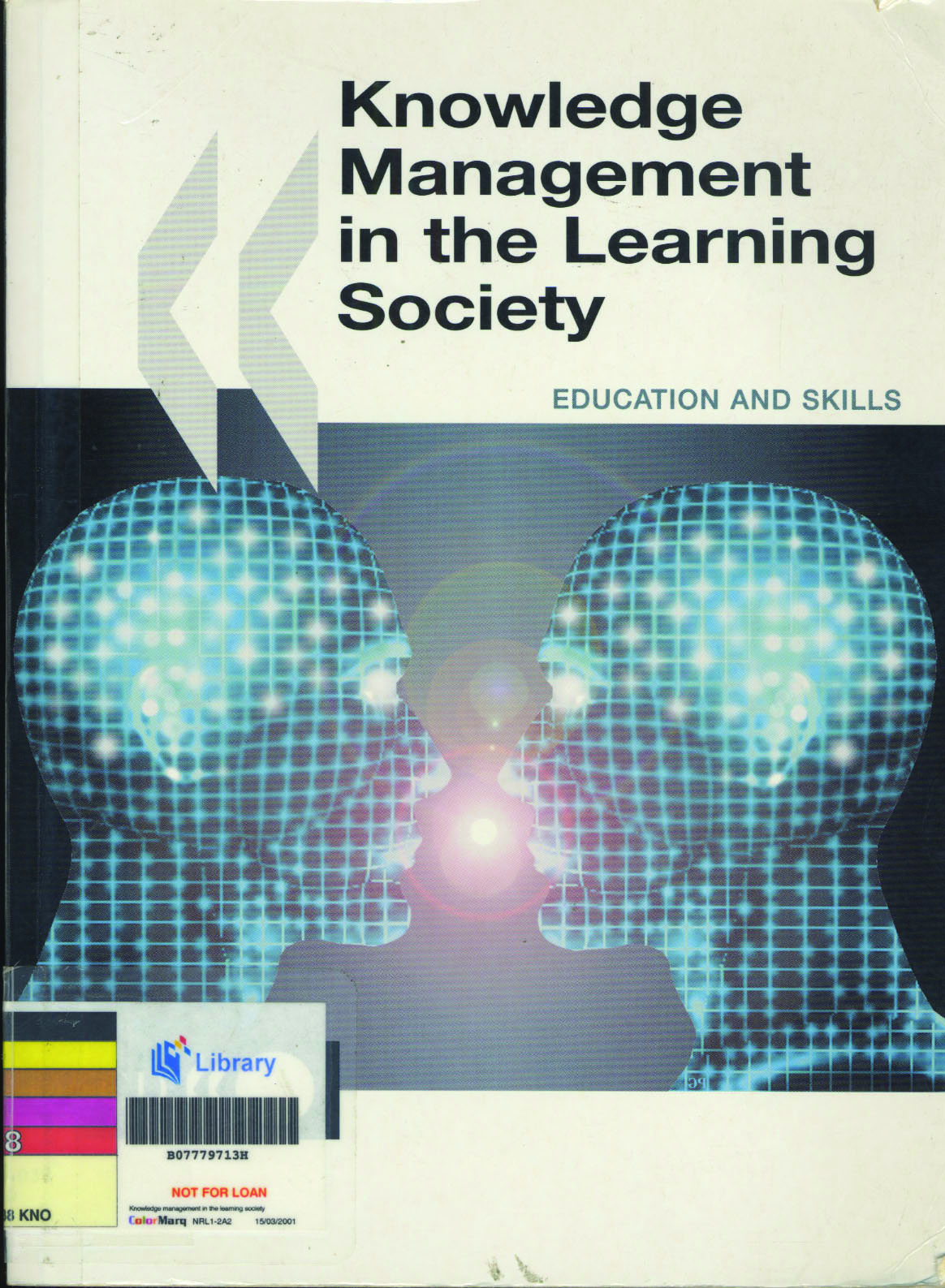
The type of assessment structures of academic staff and the students’ perception of knowledge sharing practice were also apparent. As was seen from the findings in this study, the “task-centredness” and “activity-centredness” in Org A and C required the participants to draw on other learners’ diverse backgrounds, prior knowledge and networks to solve their problems. This meant that participants needed to organise the subject matter around the task of solving the problem and not the discipline. In this manner, significant interdependence promoted active sharing, collaboration, cooperation and coordination. Conversely, although group work was promoted under the revised curriculum in Org B, given that the large proportion of the assessment was still largely based on individual evaluation, with academic staff accountable to school’s ranking. This competition appeared to constrain knowledge sharing among students in Org B.
Limitations
This study is not without limitations. Two general caveats are worth mentioning at this point. First, it is worth highlighting that this study sought to obtain the portrayals of the academic staff and students in ways that revealed the “insider” rather than some external or objective voice. Those were unique views on the context described and that they were no more and no less than the self-reported views of the academic staff and students who were approached for the study. Hence, findings from this inquiry cannot be generalised to academic staff’s or students’ experiences in other institutions. Nevertheless, such understanding can help stimulate thoughts on the barriers to knowledge sharing in other post-secondary educational institutions with similar characteristics. Second, as this study relied on self-reported data, it may very well be that participants perceived factors within their control and those that showed them in a positive light as being motivators whereas they perceived factors out of their control as opposed to factors that showed them in a negative light as being inhibitors of knowledge sharing.
Implications
This study provides some starting points for future research. The existence of differences in terms of knowledge sharing behaviour due to the assessment method employed and its associated teaching and learning practices across the three institutions, for example, raises more questions such as which type of curriculum is desirable for knowledge sharing, given that the participants’ knowledge sharing practices have been shown to be entangled with their institutions’ representational production of what is most valued (i.e., what the assessment values).
As the insights showed that knowledge sharing is effectively a complex social practice, a systemic approach to research is needed to fully understand the nature of knowledge sharing behaviour of the academic staff and students to allow us to see the dependencies that exist between other factors affecting knowledge sharing as the current study is not able to do so decisively. As it stands, it is likely that efforts in policy recommendations that attempt to alter instruction or curriculum in educational reform effort that could improve knowledge sharing capability in Org B will likely face scepticism from the academic staff and students unless accompanied by explanation about how assessment will also be altered or is not a barrier, bearing in mind that the bulk of the “A” Level examination is set by the external board. This recognition means thinking about how others can get involved in producing the identities of the participants and the value they should hold towards knowledge sharing. This suggests that a deeper understanding of the topic be explored to broaden the investigation initiated by this study.
Conclusion
In this paper, I have attempted to present my rendering of the nature of knowledge sharing, grounded in the accounts of academic staff and students from three selected public post-secondary institutions in Singapore. Documenting the thoughts of these participants provides a window into the complex social negotiations in operation in knowledge sharing practices in Singapore’s educational institutions. The insights from these participants’ accounts from differing institutional types provide a good staging ground of the influences on using student assessment in promoting/constraining knowledge sharing practices in their institutions. The insights also provide a first small step towards understanding why knowledge sharing works for some educational institutional types, but not for others. This could be useful in informing curriculum designers, planners and developers about the crucial enactment aspects of the curriculum and its relations to knowledge sharing practices. The challenge, then, is in creating educational institutions context that are capable of optimally structuring the knowledge flow so that development from knowledge sharing can occur.
The author wishes to acknowledge the contributions of Dr Jeanette Bopry in reviewing the paper, and Koh Kok Tin, a freelance editor, for editing the paper.
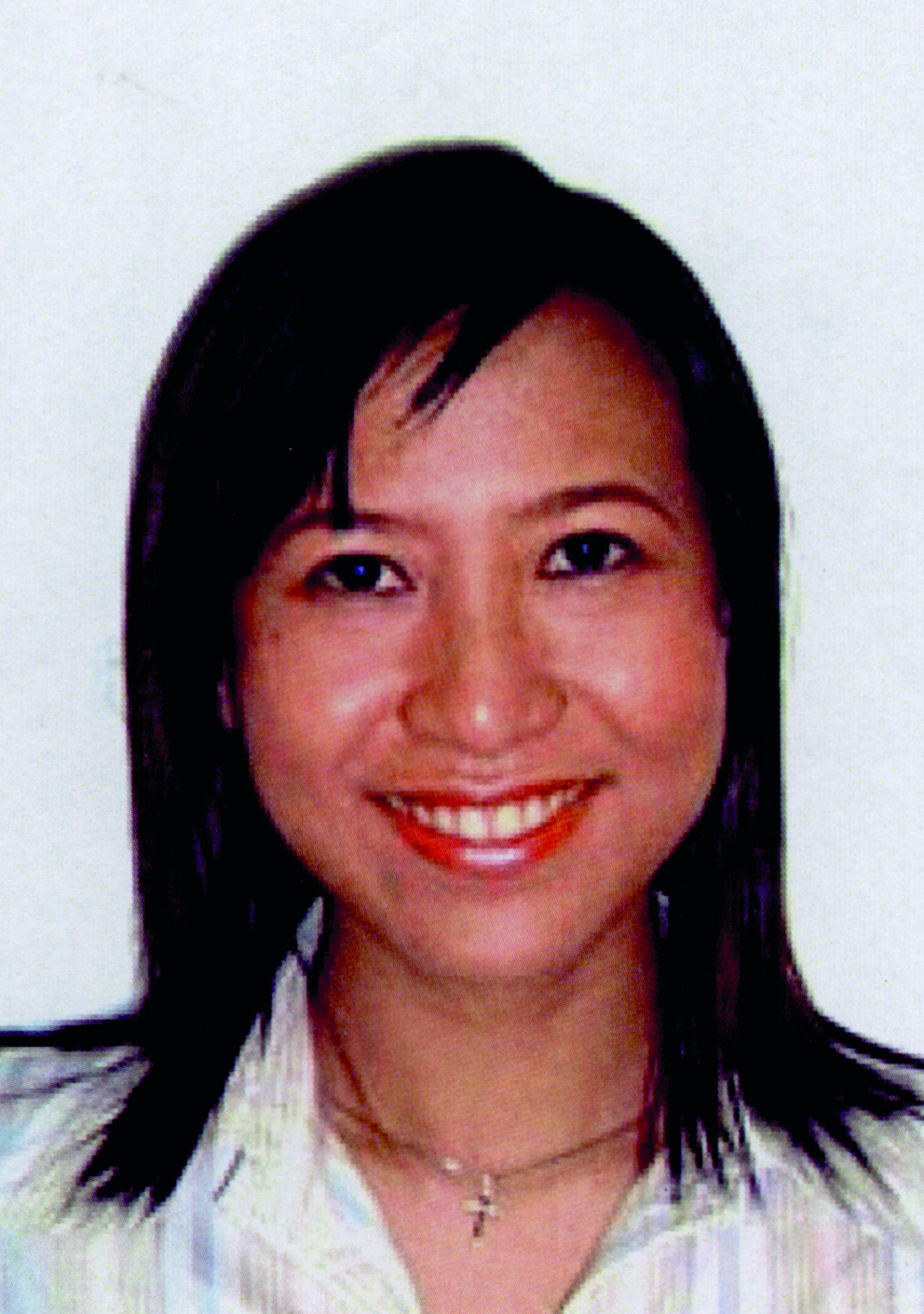
Lee Kong Chian Research Fellow
National Library
REFERENCES
Allan Luke, “The Future of Educational Research: Pragmatism, Alignment, Multidisciplinarity,” NIE Researcher 3, no. 1 (2003), 1–3.
Bent Flyvbjerg, “Five Misunderstandings About Case-Study Research,” Qualitative Inquiry 12, no. 2 (April 2006), 219–45.
David Hargreaves, “The Production, Mediation and Use of Professional Knowledge Among Teachers and Doctors: A Comparative Analysis,” in Knowledge Management in the Learning Society (Paris: Organization for Economic Cooperation and Development, 2000), 219–38. (Call no. RBUS q658.4038 KNO)
Edward Sallis and Gary Jones, Knowledge Management in Education: Enhancing Learning & Education (UK: Kogan Page, 2002)
Gary A. Cziko, “Unpredictability and Indeterminism in Human Behavior: Arguments and Implications for Educational Research,” Educational Researcher 18, no. 3 (April 1989), 17–25. (From JSTOR via NLB’s eResources website)
Manu Bhaskaran, Vikram Khanna and Tan Khee Giap, Report of The First Singapore Economic Roundtable, 2 September 2003 (Singapore: SNP Reference, 2004). (Call no. RSING 338.95957 SIN)
Michael Fullan, Leading in a Culture of Change (San Francisco: Jossey-Bass, 2001)
Organization for Economic Cooperation and Development, Knowledge Management in the Learning Society (Paris: Organization for Economic Cooperation and Development, 2000), 219–38. (Call no. RBUS q658.4038 KNO)
“Presentation by Professor David Hargreaves”, Cambridge University (paper presented at the OECD de la Muette, Paris, 24 March 2004)
Robert Huggins, Hiro Izushi and Will Davies, World Knowledge Competitiveness Index 2005 (UK: Robert Huggins Associates, 2005)
Robert K. Yin, Case Study Research: Design and Methods, 5, 2nd ed. (London: Sage, 1994)
Robert K. Yin, Applications of Case Study Research, 34, 2nd ed. (Thousand Oaks: Sage, 2003)
“Statistics Digest Online,” Ministry of Education, accessed 8 May 2005, https://www.moe.gov.sg/.
NOTE
-
The following databases were accessed: Academic Search Premier (via EbscoHOST), Australian Education Index, British Education Index, ERIC (via EbscoHOST), Education Research Complete (via EbscoHOST), Singapore’s National Institute of Education’s Dissertations and Theses Abstracts, ProQuest Dissertations and Theses, and ProQuest Education Journals. ↩


